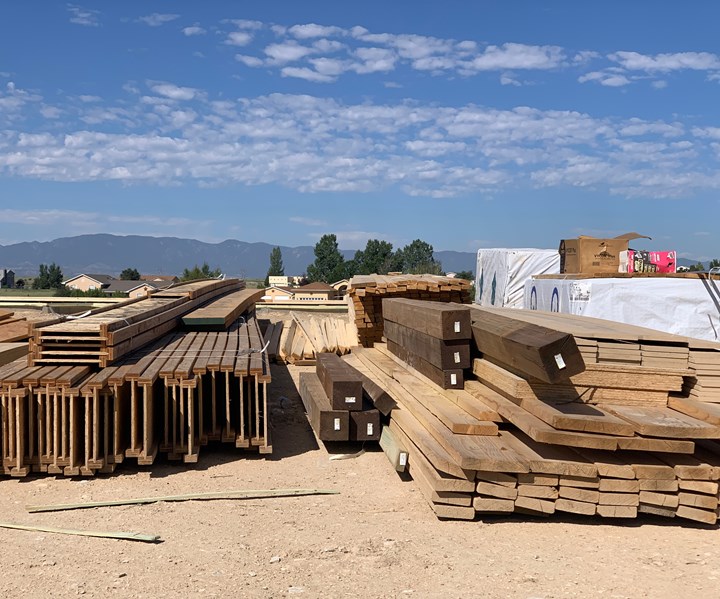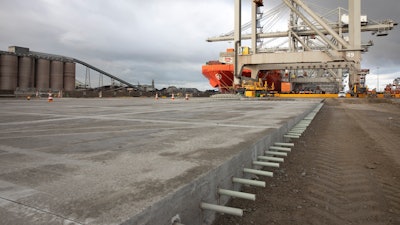Composites: The Key to Modern, Sustainable Building And Construction
Composites: The Key to Modern, Sustainable Building And Construction
Blog Article
Exploring the Uses and Advantages of Recycled Composites in Modern Industries
The combinations of recycled products with sophisticated composite modern technologies presents a promising opportunity for enhancing sustainability, strength, and cost-efficiency throughout different fields. As sectors seek cutting-edge solutions to resolve environmental issues and boost operational effectiveness, the incorporation of recycled composites emerges as an engaging alternative.
Environmental Benefits of Recycled Compounds
The usage of recycled composites in modern-day sectors provides considerable environmental advantages, adding to the reduction of waste and the preservation of all-natural resources. By incorporating recycled composites right into producing procedures, industries can decrease their dependence on virgin materials, thus reducing the quantity of waste created and the energy needed for extraction and production. This shift in the direction of utilizing recycled composites aids in drawing away materials from garbage dumps, reducing the problem on waste administration systems, and lowering greenhouse gas exhausts linked with conventional production methods.
In addition, making use of recycled compounds advertises the preservation of all-natural resources such as lumber, minerals, and water, which are usually diminished with the extraction and processing of raw products (composites). By prolonging the life expectancy of materials via recycling, industries can assist protect environments and biodiversity by decreasing the demand for brand-new resources. Generally, the fostering of recycled composites in modern-day industries plays a crucial duty in promoting sustainability and mitigating the environmental influence of manufacturing procedures
Improved Toughness in Product Manufacturing
With an emphasis on longevity and toughness, integrating recycled composites into product production procedures boosts longevity and sustainability. By utilizing recycled compounds, suppliers can develop items that are not only solid yet additionally resistant to tear and wear, making them perfect for long-lasting usage in numerous markets. The mix of different products in recycled compounds can often result in boosted toughness and sturdiness compared to traditional materials, providing an economical solution for generating long-lasting items.
One of the crucial advantages of utilizing recycled composites in item manufacturing is the ability to customize the material residential or commercial properties to satisfy details toughness requirements. By changing the make-up and production techniques, producers can tailor the recycled compounds to withstand severe environmental conditions, heavy lots, or frequent use without endangering on efficiency. This flexibility in layout and manufacturing permits for the production of very long lasting items that maintain their honesty over time, minimizing the demand for constant substitutes and ultimately adding to an extra sustainable manufacturing procedure.
Cost-Effectiveness and Economic Benefits
Incorporating recycled compounds right into item manufacturing not only improves longevity and sustainability however also uses considerable cost-effectiveness and economic advantages. Utilizing recycled composites can lead to decreased material prices as recycled products are typically less pricey than virgin materials. Additionally, reusing composite materials can decrease waste disposal expenses and decrease the requirement for land fill space, adding to general cost savings for industries.

Advancement and Layout Versatility With Recycled Composites
Using recycled composites in contemporary industries uses unparalleled possibilities for innovation and layout you can check here flexibility. By incorporating recycled products right into composite production procedures, companies can press the boundaries of conventional style restraints and check out new possibilities. The versatility of recycled composites enables the development of complex forms and structures that could not be achievable with standard materials.
Among the essential benefits of recycled composites is their capability to be formed into numerous types, offering designers the liberty to explore distinct shapes and sizes. composites. This flexibility opens a world of imaginative chances, enabling the advancement of light-weight yet long lasting products that satisfy the details needs of various sectors
Additionally, making use of recycled composites promotes lasting techniques and supports the round economy by lowering waste and minimizing the ecological navigate to this website influence of manufacturing procedures. This focus on eco-friendly design options straightens with the expanding trend in the direction of sustainability in modern-day sectors, making recycled composites an important resource for ingenious and forward-thinking companies.
Applications Across Different Industries
Recycled compounds locate varied and impactful applications throughout a variety of markets because of their unique homes and sustainability advantages. In the vehicle field, these products are significantly made use of for making light-weight and resilient parts, improving gas efficiency and lowering carbon emissions. The aerospace industry advantages from recycled composites in the manufacturing of aircraft components, where the products' strength-to-weight ratio is essential for making sure security and efficiency. In building, these composites are used for creating solid yet eco-friendly building materials, adding to lasting framework growth. The renewable power industry utilizes recycled compounds in wind generator blades and solar panels, utilizing their toughness and resistance to rough ecological problems. Additionally, the marine market makes use of these materials for producing boat hulls and components, supplying enhanced toughness and corrosion resistance. The versatility and sustainability of recycled composites make them beneficial across various markets, driving advancement and environmental stewardship. composites.
Verdict
Finally, the application of recycled compounds in contemporary markets offers considerable environmental benefits, improved durability in product manufacturing, cost-effectiveness, and financial advantages. The use of recycled composites enables for technology and style versatility throughout numerous sectors. Overall, the adoption of recycled composites offers a lasting and practical service for satisfying the demands of the industry while also reducing environmental impact.

One of the key benefits of making use of recycled composites in product production is the capacity to tailor the material buildings to fulfill certain resilience requirements. Making use of recycled composites can lead to reduced product prices as recycled materials are often much less expensive than virgin products. The aerospace market benefits from recycled compounds in the that site production of airplane components, where the materials' strength-to-weight proportion is crucial for ensuring safety and security and performance.
Report this page